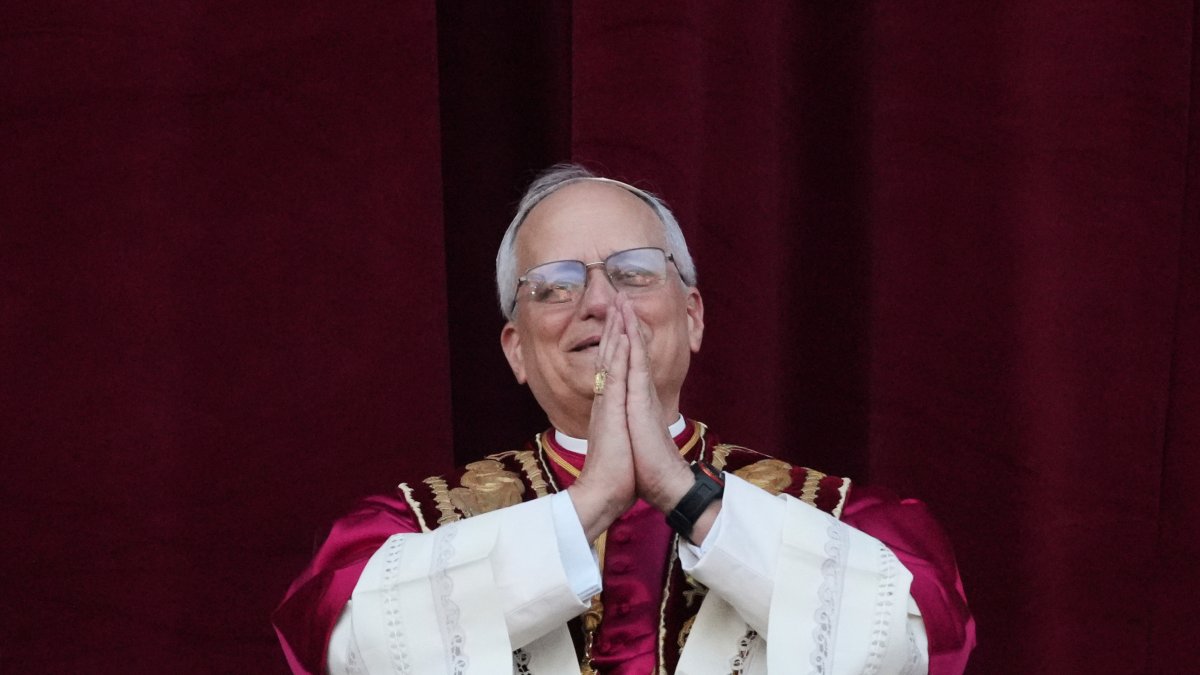- BlackVoter.Org
- Posts
- BlackVoter.Org
BlackVoter.Org


In a surprising move, President Trump dismissed Carla Hayden, the Librarian of Congress, via email, marking a controversial moment in his administration's ongoing efforts to reshape federal leadership. Appointed in 2016, Hayden was notable as the first woman and first African American to hold the position, celebrated for modernizing the Library and promoting accessibility in literature.
Her termination, part of a broader purge targeting those perceived as oppositional to Trump's agenda, has incited strong backlash from Democratic leaders who hailed her contributions as a "trailblazer" and an "American hero." Critics argue her dismissal represents a troubling attack on libraries and the free exchange of information, echoing concerns regarding censorship and historical narrative.
As the library's principal deputy librarian steps in temporarily, voices from across the political spectrum call for accountability and a defense of the principles that Hayden passionately advocated for throughout her career.

In a historic moment for the Catholic Church, Cardinal Robert Prevost has been elected as the first American pope, taking the name Leo XIV. The momentous announcement was made as he emerged from the balcony of St.
Peter's Basilica, following the conclave that gathered 133 cardinal electors to choose his successor after the passing of Pope Francis on April 21. Cardinal Prevost, a Chicago native and seasoned missionary who has dedicated much of his life to serving in Peru, brings a new era to the papacy.
His election not only marks a significant milestone in the Church's 2,000-year history but also reflects a broader, more global perspective within the Vatican. Stay tuned for more updates on this groundbreaking development in the Catholic faith.

In a scathing critique, Damon K. Jones argues that Rep.
Gregory Meeks’ cavalier dismissal of America’s soaring $34 trillion debt reflects a dangerous complacency that betrays Black communities. By trivializing decades of trade deficits, Meeks, who claims to represent the working class, ignores the economic crisis that has eroded Black middle-class opportunities and shuttered factories.
Jones asserts that this hypocrisy is especially glaring coming from a Black elected official, who should understand the stakes involved. Instead of presenting solutions or a legislative plan to address the underlying issues, Meeks falls back on partisan rhetoric, leaving his constituents disillusioned.
Jones calls for accountability, urging that complacency in the face of economic distress is not just a political failing but a moral betrayal. If leaders refuse to recognize these financial challenges as emergencies, they risk losing their legitimacy and the trust of the very communities they represent.

In this engaging commentary, Guy Trammell Jr. and Amy Miller explore the contrasting joys of summer from their unique perspectives—one in sunny Maine and the other in historic Tuskegee, Alabama.
Amy revels in the long, bright days that invigorate outdoor play and herald the end of winter blues, while also feeling a gentle anxiety about too much sunlight. Meanwhile, Guy reflects on the importance of summer as it marks the 60th anniversary of the Voting Rights Act, a significant milestone in the struggle against voter suppression faced by African Americans.
He recounts the historical challenges, from the ratification of the 15th Amendment to landmark events like the Selma to Montgomery march, underscoring the ongoing fight for equitable voting rights. Their heartfelt exchange balances personal anecdotes with historical insight, inviting readers to cherish both the beauty of summer and the legacy of civil rights activism.

In a landmark ruling, a federal court declared Alabama's congressional redistricting unconstitutional, citing intentional discrimination against Black voters. The judges asserted that the Republican-controlled legislature's map was designed to dilute Black voting power, directly violating the Voting Rights Act.
As a result, Alabama is required to abandon the disputed map, leading to the creation of a new district that successfully enabled Black Democrat Shomari Figures to win election, marking a significant moment for representation in the state. This decision, rooted in a lawsuit that reached the U.
S. Supreme Court, highlights Alabama's ongoing struggle for fair electoral practices.
The plaintiffs celebrated the ruling as a triumph for civil rights, reaffirming the importance of equitable representation in democracy. With calls for Alabama to return to federal preclearance for future redistricting, advocates continue to push for lasting change in the state's political landscape.

In a surprising twist amid the Trump administration's strict refugee policies, the U.S.
is set to welcome its first group of white South African refugees. This decision arrives despite the broader suspension of refugee admissions from other countries, spotlighting the contentious nature of immigration politics.
As many as 50 Afrikaners are expected to land at Washington Dulles International Airport, following in the footsteps of narratives pushed by high-profile supporters like Elon Musk, who argue that these individuals face discrimination in South Africa. Critics, however, highlight the stark wealth disparity in South Africa's societal structure and call into question the U.
S. government's prioritization of Afrikaners.
While some refugees aim for traditionally conservative states, others are eyeing Minnesota, known for its welcoming stance on immigrants. Whatever the outcome, this move underscores the complexities of global migration issues in the contemporary political landscape.

Civil rights leaders are expressing outrage following the acquittals of three former Memphis police officers in the brutal beating death of Tyre Nichols. This case, which ignited nationwide protests and calls for police reform, represents a disheartening setback in the ongoing struggle against systemic injustice.
Nichols' tragic death during a traffic stop, a shocking event that reverberated across the nation, underscores the urgent need for comprehensive changes in law enforcement practices. Activists argue that this verdict highlights an alarming trend in policing, where accountability remains elusive despite public outcry.
As communities rally for justice, leaders emphasize that the fight for meaningful reform must continue, aiming to confront and dismantle the ingrained issues that allow such acts to occur without consequence. The chorus for change grows louder, demanding a justice system that prioritizes human dignity and equitable treatment for all.
